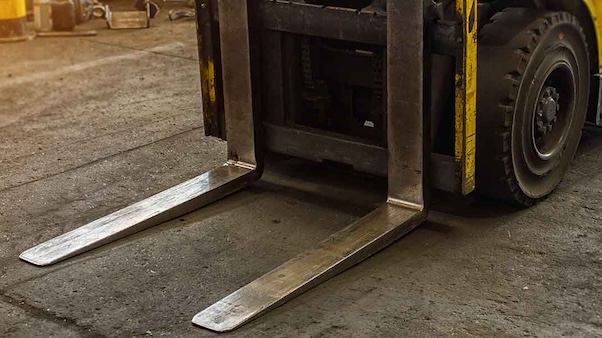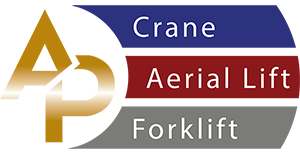
When it comes to operating a forklift, ensuring safety is paramount. One critical aspect often overlooked is the proper care and maintenance of forklift forks. These vital components bear the weight of the load and are subjected to significant stress during operations. In this article, we'll delve into essential safety tips for avoiding damage to forklift forks, ensuring longevity, efficiency, and safety within your workplace.
The Importance of Forklift Fork Maintenance
Forklift forks play a pivotal role in the material handling process. They are the link between the forklift and the load, making them susceptible to wear and damage over time. Proper maintenance not only enhances the lifespan of the forks but also contributes to the overall safety of the operator and those in the vicinity.
Regular Inspections and Maintenance
Regular inspections are the cornerstone of forklift fork maintenance. Inspecting the forks for signs of wear, cracks, bends, or other deformities is crucial. A comprehensive inspection should be performed before each shift to identify potential issues. If any damage or wear is detected, the forks should be taken out of service immediately and replaced or repaired by trained professionals.
Proper Handling and Operation
Safe forklift operation is key to preserving the integrity of the forks. Avoid abrupt stops, starts, and sharp turns that can stress the forks and lead to damage. Additionally, refrain from using the forks as a means to push or ram objects, as this can cause irreparable harm. Always adhere to the forklift's load capacity and ensure that loads are evenly distributed on the forks to prevent unnecessary strain.
Choosing the Right Forks for the Job
Selecting the appropriate forklift forks for the task at hand is paramount to preventing damage and ensuring optimal performance. Forks come in various lengths, widths, and configurations, each suited for specific applications.
Consider the Load Weight and Size
Matching the forks to the load's weight and dimensions is essential to prevent overloading and imbalance. Using forks that are too short or too long for the load can lead to uneven weight distribution, increasing the risk of damage to both the forks and the load. Always consult the forklift's specifications and guidelines to choose the right fork length.
Evaluate the Fork Material
Forks are typically made from materials such as steel and alloy. Each material has its own set of advantages and limitations. Consider the nature of your operations and the type of loads you handle when choosing the fork material. Steel forks are known for their durability and strength, while alloy forks offer a lighter option that can reduce overall forklift weight.Proper Storage and Handling
Even when not in use, proper storage and handling of forklift forks are essential to their longevity. Following these tips can significantly reduce the risk of damage.Store Forks in Dry and Clean Areas
Moisture and debris can lead to corrosion and weakening of the forks over time. Store the forks in a dry and clean environment, preferably indoors, to protect them from the elements. Implement a regular cleaning routine to remove any dirt, grease, or debris that may accumulate during operation.
Unlock new opportunities with our forklift certification program.
Use Fork Covers or Sleeves
Consider using fork covers or sleeves as an additional protective measure. These accessories provide an extra layer of defense against wear, scratches, and damage. Ensure that the covers fit properly and do not interfere with the forklift's operation. Regularly inspect the covers for signs of wear and tear, and replace them when necessary.
FAQ - Addressing Common Concerns
Can I Repair Damaged Forklift Forks Myself?
While minor issues like surface scratches can be addressed using specialized tools, it is strongly recommended to leave major repairs to trained professionals. Attempting to repair serious damage without proper expertise can compromise the structural integrity of the forks, leading to hazardous situations.How Often Should Forklift Forks Be Replaced?
The frequency of fork replacement depends on various factors, including usage, load weight, and maintenance practices. Regular inspections will help you identify signs of wear and determine when replacement is necessary. Timely replacement is essential to prevent accidents and maintain operational efficiency.Are Aftermarket Forks a Safe Option?
Opting for aftermarket forks can be a cost-effective solution, but it's important to exercise caution. Ensure that aftermarket forks meet industry standards and are compatible with your specific forklift model. Consult with experts before making a decision to ensure safety and performance.Prioritizing the care and maintenance of forklift forks is a fundamental step toward enhancing workplace safety and efficiency. By following these safety tips and guidelines, you can protect your investment, prevent unnecessary damage, and ensure the smooth operation of your forklifts.
Get proper forklift training and a reliable forklift certification
Explore our range of OSHA-approved forklift training programs that prioritize safety and compliance. Our comprehensive courses are designed to meet OSHA's exacting standards, ensuring your team gains the expertise needed to excel while operating forklifts in line with regulatory requirements.
